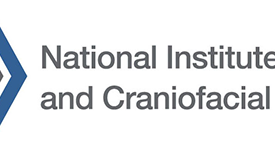-
A smarter way to think about willpower
Since World War II, obesity rates in the United States have skyrocketed, our net national savings rate has plummeted, and American adults and kids alike have allocated a rapidly rising proportion of their free time to staring at electrons dancing on screens. What’s happened to our country since the Greatest Generation? Are these secular trends symptoms of an epidemic decline in self-control? Do we need to make American self-control great again? Americans generally see themselves as kind, fair and honest people. In contrast, in a self-report questionnaire completed by more than 80,000 American adults, self-control ranked lowest among 24 strengths of character.
-
Many students don’t know how to study. Here’s how parents can help.
Among the creative and maddening reasons kids come up with for not studying, one familiar one might be worth addressing: They don’t know how. Researchers and experienced educators have found that often students don’t have good study habits and skills, or that they rely on strategies that don’t work, frequently at the urging of teachers and parents. “It is somewhat shocking how many students just don’t know how to do it, which frustrates them and can turn them off to enjoying learning,” says Henry Roediger III, a professor of psychology and brain science at Washington University in St.
-
Eleven APS Fellows Elected to American Academy of Arts & Sciences
The American Academy of Arts & Sciences has announced the election of more than 200 new members, including 11 APS Fellows. The 2019 class includes APS Past Board Member and James McKeen Cattell Fellow Stephen J. Ceci (Cornell University), and APS Mentor Award Recipient Mark H. Johnson (University of Cambridge) was named an international honorary member. Ceci—who studies the development of intelligence and memory as well the accuracy of children’s courtroom testimony — is the author of approximately 450 articles, books, commentaries, reviews, and chapters.
-

NIH Funding Opportunity for Neuroimaging Data Secondary Analysis
The National Institutes of Health have announced a funding opportunity for projects that will conduct secondary analysis of existing data from the Brain Research through Advancing Innovative Neurotechnologies Initiative. NIH intends to commit an estimated total of $4 million to fund 8 awards in fiscal year 2020. Visit Page
-

Oral-Health Researchers to Be Recognized at APS Convention
The National Institute of Dental and Craniofacial Research has selected four scientists who are conducting research at the intersection of psychological science and oral health to receive the 2019 Building Bridges Travel Award, offered jointly with APS. Visit Page
-
Inside the lab using mind-changing psychology experiments to solve the Israel-Palestine conflict
To read a man’s mind, first you have to outline his skull. Last November, I watched a psychologist use a digital pen to draw the circumference of a man’s head. The coordinates of his brain were quickly mapped, pinpointing the precise areas within his skull that process emotions. Behind him, a massive magnetic mind-reader—a neuroimaging device called a magnetoencephalography, or MEG—emerged from the wall, funneling into an oversized white helmet. It took two scientists to slowly maneuver the apparatus into position around his head. As the man lay still, staring blankly up at a screen, researchers crossed wires over his body and taped sensors to his temples.

